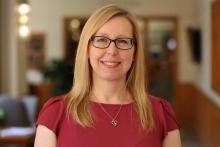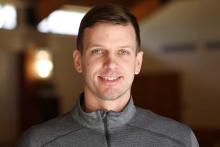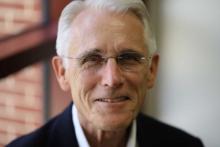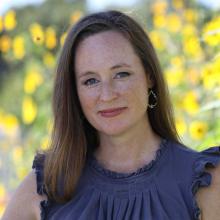Call and Respond
Now there are varieties of gifts, but the same Spirit; and there are varieties of services, but the same Lord; and there are varieties of activities, but it is the same God who activates all of them in everyone. To each is given the manifestation of the Spirit for the common good.
1 Corinthians 12:4-7
The word “seminary” derives from the Middle English “seedbed.” Seminaries are places of growth and formation, where young shoots are tended with care before the harvest. At George W. Truett Theological Seminary, this imagery is fitting. However, in recent years, a shift can be seen in the Seminary garden.
While students from Texas Baptist churches pursuing Master of Divinity degrees with a calling to serve in congregational ministry are still the majority and still a priority at Truett Seminary, an increased diversity of callings and backgrounds among students is emerging.
“I think the landscape of ministry, to some degree, has always been in flux—adapting—and our work has always been to try to listen to the churches and to nonprofit contexts and then to attend to where the needs are and to identify where we have gaps in preparation,” said Angela Reed, PhD, Associate Dean for Academic Affairs, Associate Professor of Practical Theology, and Director of Spiritual Formation.
Reed stresses the need for seminary leadership and faculty to listen to churches and other partners about the needs they are experiencing in order to understand how the training offered by the Seminary is actually helping or falling short of the reality.
“We have to work really hard not to become insulated but instead to open up and listen to how the Spirit appears to be moving in the hearts of God’s people,” she said. “We watch for that and then we seek to come alongside by preparing and training people to serve in those ways.”
One of the most recent examples of the Seminary listening to needs and then responding with innovation is the introduction of three new degree programs to the Truett curriculum—the Master of Arts in Contextual Witness and Innovation, the Master of Arts in Theology and Sports Studies, and the Master of Arts in Theology, Ecology, and Food Justice.
Innovation through Programming
“The context of sports is a unique ministry space. We wanted to develop a degree program that is designed for them—as coaches, administrators, chaplains, or ministers—without a requirement that they take a break from their career.”
Paul Putz, PhD, Director of the Theology and Sports Studies Program
Like Reed, Paul Putz, PhD, Director of the Theology and Sports Studies Program, recognizes the need for theological training options to reflect changes in the field of ministry.
“As seminary education adapts to the changing contexts of the 21st century, we want to provide options for students who are seeking theologically grounded, academically rigorous education applied to specific areas of ministry and vocation,” Putz said.
The new Theology and Sports Studies degree is Truett Seminary’s first fully online program. This 39-hour program is designed to provide Christian leaders and ministers in sports with a strong theological foundation, contextually relevant formation, and cultural literacy so that they can engage with the people and culture of sports as thoughtful, faithful, and responsible Christians. While Truett does offer a Sports Ministry graduate certificate and concentration within the Master of Divinity and Master of Arts in Christian Ministry degrees, respectively, the new M.A. program provides a more specialized curriculum for professionals in the field.
“The context of sports is a unique ministry space,” Putz explained. “For Christian leaders within that world, we wanted to develop a degree program that is designed for them as coaches, administrators, chaplains, or ministers without a requirement that they take a break from their careers.”
Michael W. Stroope, PhD, Holder of the M.C. Shook Chair of Missions and Director of the Contextual
Witness and Innovation degree program echoes Putz’s thoughts on developing targeted degree programs.
“These three new degrees are specializations. They have been tailored for you. They were developed with you in mind,” he said. “These degrees are not for everybody, but they are for somebody.”
The 38-hour Master of Arts in Contextual Witness and Innovation is particularly focused on calling and vocation. Offered on the Waco campus, the program leads students to explore opportunities to create social and economic change through innovation while bearing witness to Jesus Christ in their chosen vocation.
Creating Space for Discernment
While many of those entering these new degree programs will have a clarity of calling, many incoming seminary students are still in need of greater discernment. Reed describes how the Truett curriculum is designed to allow space for reflection and self-discovery.
Much of this work is done through the Spiritual Formation Program and the Covenant Group model. This four-semester process guides students through prayer and spiritual exercises with a mentor. Questions around calling and purpose emerge during the first semester and continue throughout the program.
“The second half of semester three is focused on group spiritual guidance and direction, and it’s often in this context when students are reflecting more deeply on what they have gained so far and what they imagine themselves doing in another year and a half,” said Reed. “That moment is really significant, and it’s intentionally designed to happen in semester three.”
Because the core courses in Truett’s Master of Divinity and Master of Arts in Christian Ministry
degree programs are fairly consistent, students who discover or clarify a specific calling during the spiritual formation process are able to change or select their area of concentration without delaying their graduation. This allows time for students to take a number of electives in their chosen concentration to prepare them better for their calling.
Both core courses and electives are part of the discernment process. Preaching, for example, is a required course in the Master of Divinity program. It is not uncommon for students—and particularly female students—who have not had the opportunity to preach before to discover a calling of proclamation and leadership in that class. Similarly, electives allow students to “try out” various fields of ministry while still in seminary.
For the Church
The Master of Divinity and Master of Arts in Christian Ministry—along with their various concentrations—are both geared toward congregational ministry. While many of the students who pursue these degrees will ultimately serve within the Church, many others will serve alongside the Church.
The three new Master of Arts degrees function similarly. While their emphases are more specific and may tend toward “alongside” ministry, they each bolster and expand the ministry of the Church.
“When a student graduates with a generalist degree, it’s typically wonderful. They are prepared for many, many things. But then what if a church says, ‘We really need to develop ministry opportunities within our context around community gardening or around food justice issues.’ A more general degree may not provide training for that,” Reed said. “At Truett, we are trying to create opportunities for training that would meet the needs of a church with a sense of call to a particular kind of ministry. Our new degrees specifically attend to these kinds of requests.”
Theology, Ecology, and Food Justice
You may recall a feature on the M.A. in Theology, Ecology, and Food Justice degree in the 2021-2022 edition of The Cord. Launched in Fall 2020 under the direction of Jennifer Howell, PhD, the Theology, Ecology, and Food Justice Program at Baylor’s Truett Seminary invites students, ministers, and community leaders to explore a subject that is both niche and universally critical.
Originally, a grant-funded initiative by World Hunger Relief Inc. and the Baugh Family Foundation, the Theology, Ecology, and Food Justice Program has experienced significant progress and development over a short amount of time.
“A big part of [the last two years] was simply helping students see that care of creation is a theological enterprise,” Howell said. “It’s something that we’re called fundamentally to do as Christians. To get into the literal weeds and dirt of how we can participate in caring for creation has been really gratifying and surprising.”
Howell teaches two academic courses at the World Hunger Relief Farm—or as it is commonly called, “The Farm.” One is “Introduction to the Doctrine of Creation” and explores Jesus’s connection to creation, and the other is a class on food justice, where students are introduced to the global food systems and how they work and do not work.
“Once you get your hands in the dirt, once you begin to actually pay attention to the way that land is a central figure in our Scriptures, it really changes the way that you live,” Howell said.
As critical conversations around creation care, food justice, and related topics increase in relevancy and urgency, it is crucial that Christians engage thoughtfully and knowledgably in the discussion.



